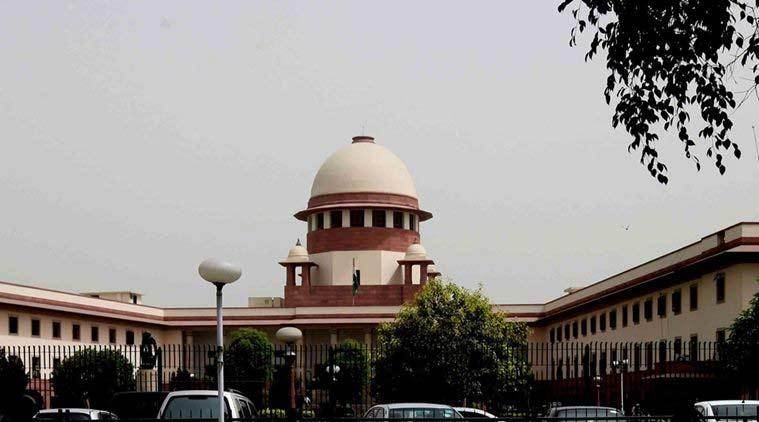 The Supreme Court’s decision to consider seven questions of law touching upon the fundamental right to freedom of religion is set to push the envelope on the idea of reforming personal laws. (File)
The Supreme Court’s decision to consider seven questions of law touching upon the fundamental right to freedom of religion is set to push the envelope on the idea of reforming personal laws. (File)
The Supreme Court’s decision to consider seven questions of law touching upon the fundamental right to freedom of religion is set to push the envelope on the idea of reforming personal laws.
“We have heard the parties at length. For reasons to follow, we hold that this Court can refer questions of law to a larger bench in a Review Petition,” a nine-judge Constitution Bench said Monday. It did not indicate when a detailed order will be passed.
One of the seven questions of law framed by the court itself is on “the scope and extent of the word ‘morality’ under Articles 25 and 26 of the Constitution of India and whether it is meant to include Constitutional morality?”
A ruling on Constitutional morality and the extent to which courts can review personal laws and religious rights furthers the legal discussion on the Uniform Civil Code. The BJP’s call for “one nation, one law,” or the Uniform Civil Code, rests on the reform of personal laws of all religions. Those who endorse the UCC idea have highlighted the discriminatory nature of personal laws, especially towards women.
In 2018, the Law Commission, headed by retired Supreme Court judge Justice B S Chauhan, had said in a white paper that UCC was “neither desirable nor possible”. Instead, the Commission had recommended amending several personal laws in a “piece-meal fashion” to bring uniformity in personal laws. In 2016, the Law Ministry had asked the Commission to examine the feasibility of bringing in the UCC.
Constitutional morality refers to the ‘morality’ or the values that is inbuilt in the Constitutional structure. Constitutional morality, as then Chief Justice of India Dipak Misra wrote in his opinion in the Section 377 verdict, goes beyond the literal text of the Constitution and is discerned by a closer reading of Constitutional values that every individual or law has to follow.
While legal experts have cautioned the court against using this doctrine arbitrarily since ‘Constitutional morality’ is interpretative, the doctrine has been used by judges in many significant cases recently including the Sabarimala case, Navtej Singh Johar case where the SC decriminalised homosexuality, Joseph Shine case in which the SC decriminalised adultery to strike down laws. In the rulings on triple talaq, Section 377 and Sabarimala, the court had said that religious beliefs and practices must give way to Constitutional morality when such practices are at odds with liberty, dignity and equality of citizens.
The doctrine is now also being sought to be applied to the question of entry of Muslim women into mosques and to challenge practices such as nikah-halala and polygamy in Islam.
The judicially evolved doctrine of Constitutional morality was used in 2017 by a five-judge bench of the Supreme Court which, in a 3-2 verdict, struck down triple talaq or talaq-e-biddat. The doctrine was discussed by the court in 1954 in the landmark Shirur Mutt case where the court distinguished between religious activities of a temple and secular activities like financial management. In this judge-made test, laws that are deemed contrary to “Constitutional morality” are struck down as unconstitutional. In the Section 377 case, the court said that laws must comply with Constitutional morality and not public morality. The doctrine has been applied to cut through discriminatory religious practices and remove the protection such practices had under the fundamental right to freedom of religion.
“To treat women as children of a lesser god is to blink at Constitutional morality,” Justice D Y Chandrachud had said in a separate opinion in the 2018 Sabarimala verdict.
He said “the freedom of religion and, likewise, the freedom to manage the affairs of a religious denomination is subject to and must yield to these fundamental notions of constitutional morality. In the public law conversations between religion and morality, it is the overarching sense of constitutional morality which has to prevail. While the Constitution recognises religious beliefs and faiths, its purpose is to ensure a wider acceptance of human dignity and liberty as the ultimate founding faith of the fundamental text of our governance. Where a conflict arises, the quest for human dignity, liberty and equality must prevail”.
He was part of the 4-1 majority that struck down the restriction on menstruating women from entering the Sabarimala shrine on the grounds that it was discriminatory and violative of Constitutional morality.